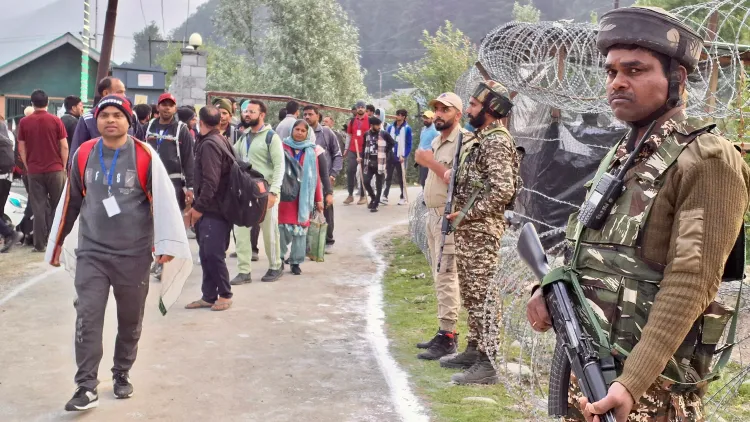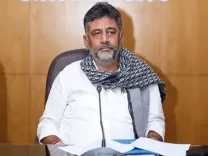Is a Complete Security Grid Ready for the Amarnath Yatra Starting July 3?

Synopsis
Key Takeaways
- Comprehensive security measures for Amarnath Yatra.
- Use of advanced surveillance technologies.
- Collaboration between civil administration and security forces.
- Pilgrims advised to register and stay informed.
- Robust amenities provided at halting stations.
Srinagar, June 25 (NationPress) Authorities have established a comprehensive multi-layered security framework just nine days before the commencement of the Amarnath Yatra, slated to begin on July 1. Officials confirmed this on Wednesday.
This security ring is staffed by the Indian Army, Central Armed Police Forces (CAPFs) like the BSF, SSB, and CRPF, along with the Jammu and Kashmir Police. It will remain active for the entire duration of the 53-day pilgrimage, which concludes on August 9.
A mock exercise aimed at evaluating the preparedness and responsiveness of the security personnel is scheduled for today, covering both the southern route via Pahalgam and the northern route through Baltal.
Moreover, in addition to the district police across various regions of Jammu and Kashmir where pilgrims will traverse, ten Superintendents of Police (SPs), fifteen Deputy Superintendents of Police (DySPs), and numerous CAPF personnel have been deployed to ensure robust security for this year’s Yatra.
To counter any potential threats, over two dozen cordon and search operations (CASOs) are conducted daily in South Kashmir. Security forces maintain a strong presence along the entire route from Srinagar to the cave shrine, particularly on the Baltal route.
Local police leaders have assured the public that they will adopt a zero-tolerance policy towards any actions that could disrupt the peaceful execution of the Yatra.
The security grid incorporates high-definition CCTV cameras, drone technology, and satellite surveillance.
In addition to physical security measures, drone reconnaissance and AI-enabled facial recognition systems have been deployed at critical checkpoints.
While security forces are tasked with ensuring the safety of the Yatris, the civil administration is responsible for providing essential amenities like water, electricity, sanitation, and medical services at each designated stop.
Multiple base camps and community kitchens, known as langars, have been established with all necessary clearances and safety inspections completed.
“We are collaborating closely with the police and the Army. Our contingency plans account for weather issues, landslides, and health crises,” stated a representative from the Divisional administration.
The Union Home Ministry is closely monitoring the situation, according to sources.
Pilgrims are strongly encouraged to register before embarking on the Yatra and to remain vigilant concerning the unpredictable weather conditions along the challenging route to the cave shrine, located at an altitude of 3888 meters above sea level.









